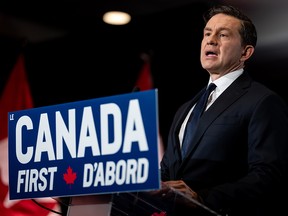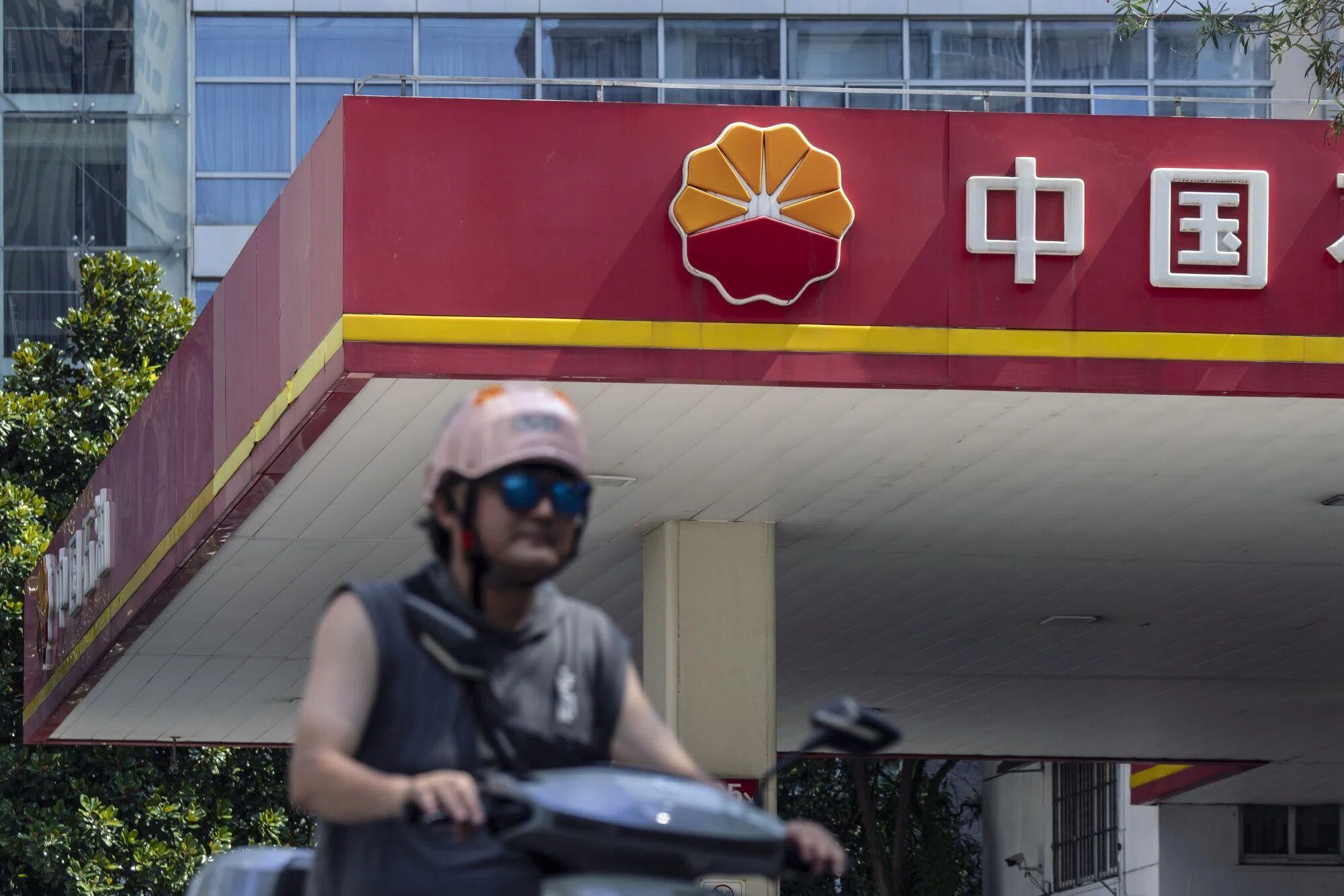Poilievre said that if the Conservatives win the next election, he’ll reward provinces with a ‘free trade bonus’ each time they remove a trade barrier
Article content
OTTAWA — On what was expected to be the eve of a massive trade war with the United States, Conservative Leader Pierre Poilievre called for Canada to drop longstanding trade barriers between provinces to lessen the impact of American trade uncertainties.
Article content
Article content
U.S. tariffs were to take effect on Tuesday, but Prime Minister Justin Trudeau announced Monday afternoon that the two countries had agreed to a 30-day delay.
Advertisement 2
Article content
“Our new top trading partner will be… Canada,” said Poilievre in a video posted to social media on Monday morning, outlining his plan to “massively increase” internal trade between the provinces.
Poilievre said he would overhaul Canada’s unsuccessful internal trade agreement if he is elected prime minister, promising to meet with Canada’s premiers in his first 30 days to remove as many trade barrier clauses as possible.
The current agreement has 133 pages’ worth of carve-outs, exempting such goods as alcoholic beverages, cannabis and fireworks from interprovincial transport.
A recent study by the Canadian Federation of Independent Business found that getting rid of these sorts of internal trade barriers could boost Canada’s GDP by up to $200 billion annually.
Poilievre said that if the Conservatives win the next election, he’ll reward provinces with a “free trade bonus” each time they remove a trade barrier. The bonus will be set by calculating the resulting GDP boost from the deregulation, with the province getting an equivalent federal transfer.
Recommended from Editorial
Article content
Advertisement 3
Article content
Trevor Tombe, an economist with the University of Calgary’s School of Public Policy, said that the bonus could be a creative way to get around the federal government’s general lack of constitutional jurisdiction over things like professional licensing standards, safety regulations, and other trade frictions.
“It’s encouraging to see that (Poilievre’s) proposal is putting on the table what the feds do have, and that’s spending power,” said Tombe.
Sean Stephenson, a trade specialist with law firm Dentons, said that the bonus could shortchange certain provinces, specifically Alberta, which has already removed most or all barriers to interprovincial trade, while rewarding those who have been less co-operative to date.
“If the idea is to compensate laggards that haven’t already taken action, I can see a few provinces pushing back on that,” said Stephenson.
Alberta unilaterally eliminated most of its barriers to imports from other provinces in 2019.
Stephenson said Alberta would be well within its rights to demand compensation for its past actions to promote internal trade.
Advertisement 4
Article content
Tombe said he disagreed, noting that the trade exemptions scapped by Alberta under ex-premier Jason Kenney were more symbolic than substantial.
“Kenney did that to start a national conversation,” said Tombe, adding that the start of the COVID pandemic in early 2020 derailed Kenney’s plans for a second wave of more meaningful changes.
“Alberta maintains about as many barriers as everyone else, because these barriers are largely just regulations that differ from one province to the next,” said Tombe.
Poilievre also said on Monday that he would take action as prime minister to standardize trucking rules, which often require truckers to adhere to different standards in different provinces. He also promised to set up a Canada-wide “Blue Seal” licensing standard for doctors, nurses and engineers, something he has already been promising to do.
Tombe called this a good start, but stressed that it wouldn’t be a silver bullet solution to the damage done by future U.S. tariffs, as it would take years to realize gains from freer internal trade.
“Gains come in the form of some firms expanding and others contracting,” said Tombe. “You’re basically nudging growth a few tenths of a point per year.”
Advertisement 5
Article content
Getting rid of interprovincial trade barriers is an idea that enjoys support across federal party lines. Federal Transport Minister Anita Anand, who is also the Liberal government’s lead on internal trade, has spoken regularly on the economic urgency of removing these barriers.
Christopher Kukucha, a professor of Canadian intergovernmental relations at the University of Lethbridge, says there’s a good reason the rhetoric on internal trade hasn’t added up to results, pointing to the benefits of internal trade barriers for some businesses.
“Many of the industries protected by internal trade benefit from the lack of competition as they have difficulty competing in open markets. Some provincial governments also enjoy the revenue generated from regulating these barriers.”
National Post
rmohamed@postmedia.com
Get more deep-dive National Post political coverage and analysis in your inbox with the Political Hack newsletter, where Ottawa bureau chief Stuart Thomson and political analyst Tasha Kheiriddin get at what’s really going on behind the scenes on Parliament Hill every Wednesday and Friday, exclusively for subscribers. Sign up here.
Our website is the place for the latest breaking news, exclusive scoops, longreads and provocative commentary. Please bookmark nationalpost.com and sign up for our politics newsletter, First Reading, here.
Article content








